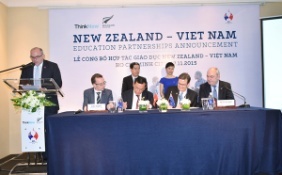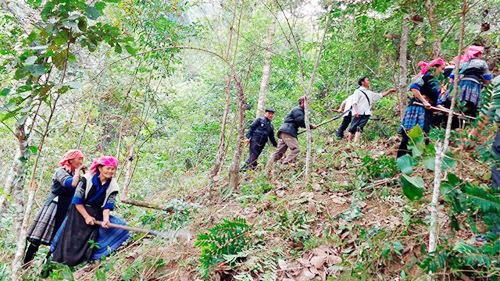Understanding how ethnic minority households make decisions on using their forest land !
9/26/2016 2:17:00 PM
(VACNE) - This is the key objective of a PhD research project that has just been developed at the New Zealand School of Forestry, University of Canterbury.
Viet Tran,
Party Central Committee (PCC)'s Economic Commission, Vietnam.
This research is being conducted by a Vietnamese central government employee and funding for the work has been provided by the New Zealand-ASEAN Scholar Awards scholarship, a multiple-level cooperation program between New Zealand and ASEAN countries, including Vietnam.

Hong Lien (Photo: ENZ)
Issues of the research is as important as issues related to forests and indigenous people globally, when forest land and ethnic minority people in Vietnam play a key role in meeting sustainable development goals.
Vietnam is a tropical country with 50% of its 32 million hectares being categorised as forested land. It is also a diverse country in terms of culture, as14% of the total population belongs to 53 ethnic minority groups and their livelihoods are heavily dependent on forests.

Cultivating forest land of Minority ethnic (Source: Journal of Ethnology)
The research will look at the grass-roots level to understand how socio-political and economic factors influence forest ownership and land use decision making of individual households.
On a larger scale, this research provides a reflective lens for national policies and projects associated with forest management and the livelihood of the people. This research is new and interesting because it employs a bottom-up approach to examine national forest land allocation policies and policies to promote community forest management.
The research will employ an interesting framework, combining a mathematical model - the Ethnographic Decision Tree Model (EDTM) – and a cognitive model –logistic regression analysis.
While the logistic model is statistical and has been widely used for hundreds of years; the EDTM uses an ethnographic approach, and has just been proposed in the last few decades by Christina H. Gladwin, a well-known American agriculture scientist.
To test the combination framework, the research approach case studies, in which has initially been identified two representative cases, Lao Cai and Nghe An province, one in the North and the other in the Central region of Vietnam. These are two rich case studies with highly proportion of ethnic minority people and forest land in the country.
Lượt xem : 3577